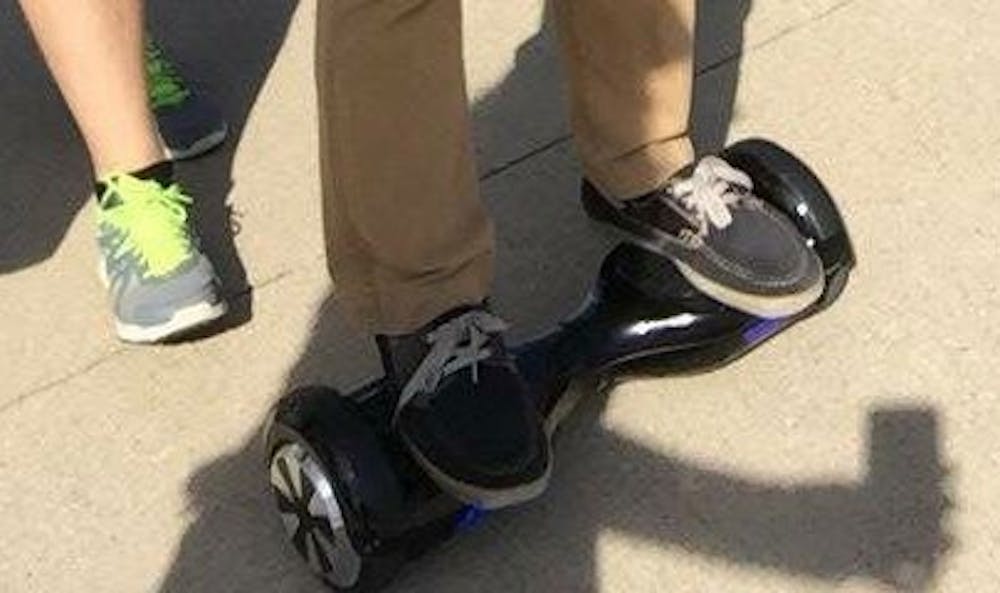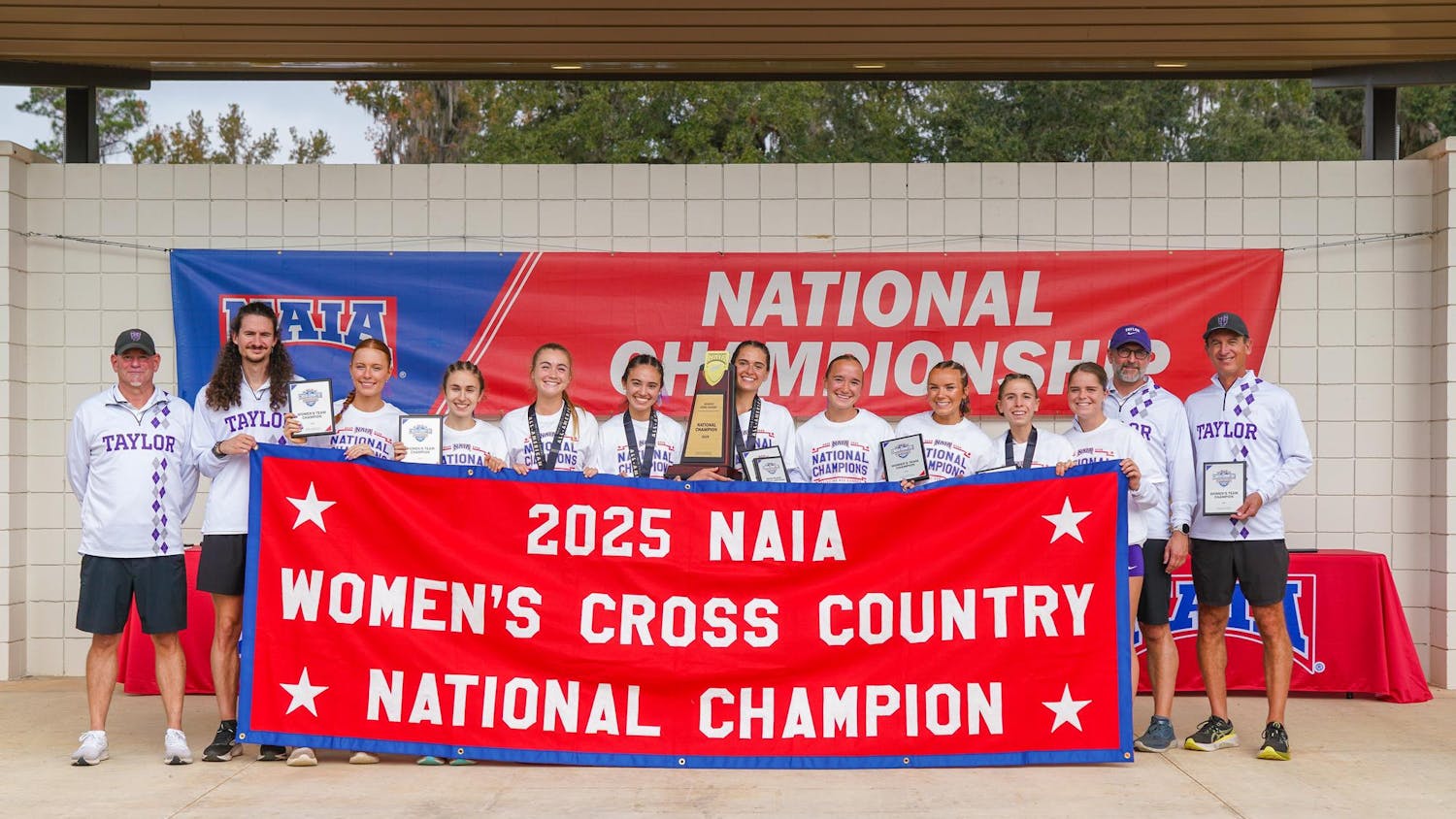By Annabelle Blair | Echo
Nathan Shelton received a hoverboard for Christmas, but the junior can no longer use it to roll around campus. As of Jan. 15, the business administration and student development departments banned the use, possession or storage of hoverboards and drones at Taylor. Authorities cite privacy and safety concerns in their bans.
Shelton questioned why Taylor administration waited until after the holiday season to announce the ban, considering that high-end models cost around $300.
An email announcement required hoverboards be removed from campus, giving no indication they'd be permitted back. The self-balancing scooters are undergoing investigation by the Consumer Product Safety Commission after devices caught on fire during use and while charging.
Although cheaper brands of these devices appear responsible for a majority of incidents, there are no clear answers about the defects.
"As far as what I think of (the) ban, the word 'unwarranted' comes to mind," Shelton said. "I've read several articles about hoverboards and the research that's been done; there hasn't been much saying 'don't use them' or 'ban them.' It seems kind of out-of-left-field that they would say, 'you can't have them.'"
Shelton suggests finding solutions, such as distinct places to charge the boards, that will be both safe and accommodating for everyone.
"I absolutely understand they're doing this in the best interest of human beings and the campus at large," Shelton said. "I'll respect their rule because of that, but I think it could be monitored."
Drones are banned with the exception of use inside a controlled laboratory environment, outside with pre-authorization from the vice president of business administration or as part of a sanctioned club.
Junior mechanical engineering major Daniel Luke worked on Taylor's summer satellite program. Although not directly involved with drone projects, he recognizes potential legal issues with drones.
"Those who know about them and want to use or try drones should be able to work with the new technology," he said. "I feel like it'd be better to cultivate ingenuity with new technology in a safe and directed manner-but still allowing that innovation to happen."
Luke suggested Taylor find alternatives that are less extreme and more conducive to technological growth and exploration.
"I don't think the decision they made was the most beneficial for administration-student relations," he said.
Ronald Sutherland, vice president of business administration, stated in an email that Taylor followed policies consistent with insurance recommendations and the procedures of other colleges.
"Due to the growing possibility of these items being on campus, we felt it better to be ahead of the curve than responding to any one specific use or situation," Sutherland said. "Some may lose the ability to use something they own on campus, but this seems to be limited in number and offset by concerns over safety for all of our students and staff."
Sophomore Andrew Brueck has had a Segway device since his first month at school and questions the hoverboard ban on campus.
"If they're talking danger, it goes like 4 mph, and I'd be more afraid of a skateboard hurting people," Brueck said. "Maybe once they get it all worked out, we can lift the ban."





